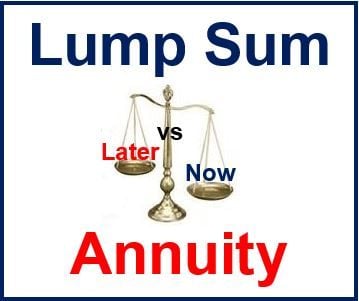An annuity is a contract you make with an insurance company in which you pay a lump sum or contribute a series of payments in return for a regular income that may start immediately or at some date in the future.
Put simply, “An annuity is a pension investment that guarantees to pay a secure income for the rest of your life, no matter how long you live,” according to This is Money.
Annuities are aimed at providing people with a regular income when they retire. Funds accumulate on a tax-deferred basis, and can only be withdrawn without penalty after a specific age, which in the United States, for example, is 59.5 years, and the UK 55 years.
There are many types of annuity, which can be tailored according to the needs of the recipient. As well as deciding whether you want to pay a lump sum or a series of contributions to the insurer, you can also choose when you want to start receiving payment.
An immediate annuity: the annuity begins paying out immediately.
A deferred annuity: the annuity starts at a preset date.
How long you receive your regular payments may also vary. The customer may either choose to be paid regularly for a period of, for example, 20 years, or until he or she dies.
An annuity that lasts until you die may mean that each regular payment is smaller, but at least it makes sure that you never outlive your assets.
There are three main types of annuities – fixed, variable and indexed.
Deciding on whether to opt for a lump sum or annuity is not easy.
The advantages of a lump sum are: you get your money immediately, you can start spending it straight away, if you invest it wisely you might get a better rate of return, you can use it to buy a house or start a business, and you don’t have to worry about inflation eating away at your funds over the years.
The advantages of an annuity arrangement are: your income is guaranteed over the settlement period, and if you are not good at controlling your spending at least you know you have a regular income.
UK annuity rule change
As from April 2015 in the UK, people aged 55+ years will be allowed to access their defined contribution pensions and do what they wish with it, i.e. they can either arrange an annuity or take out the whole amount and invest it elsewhere.

